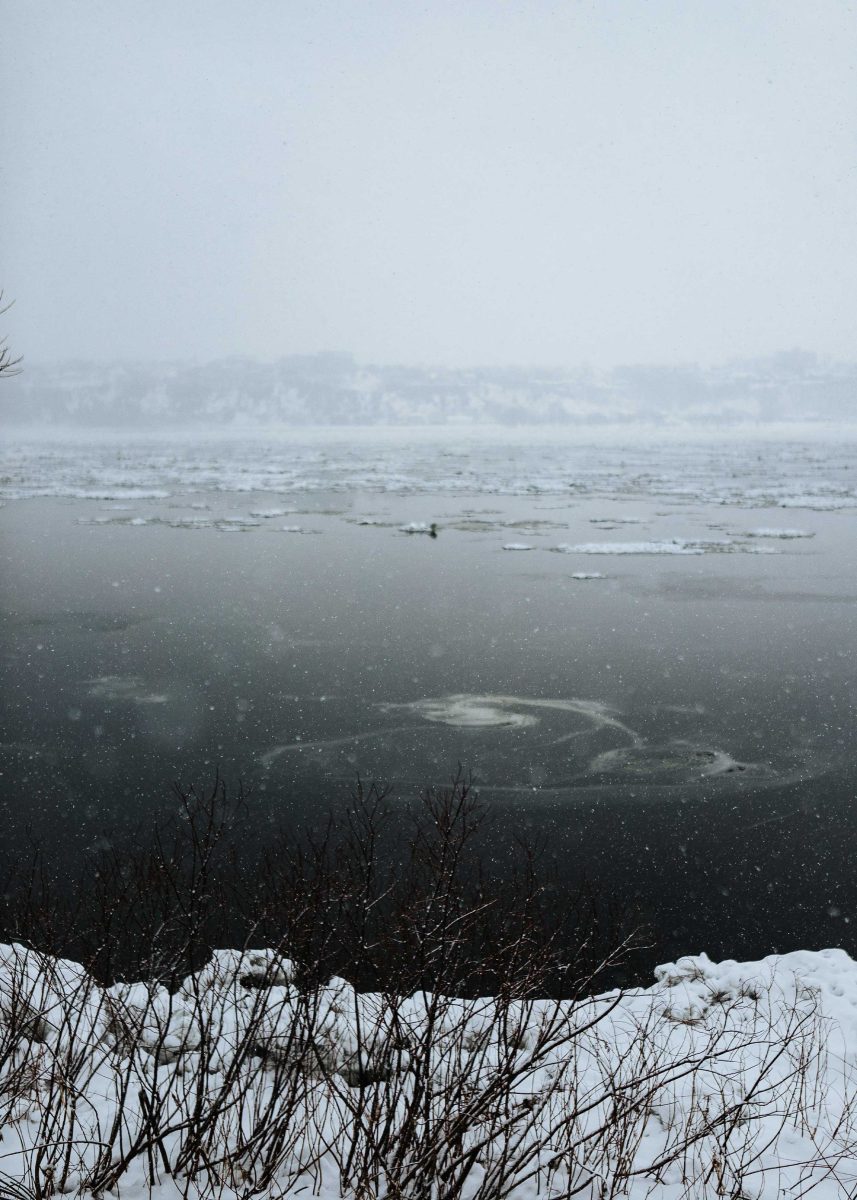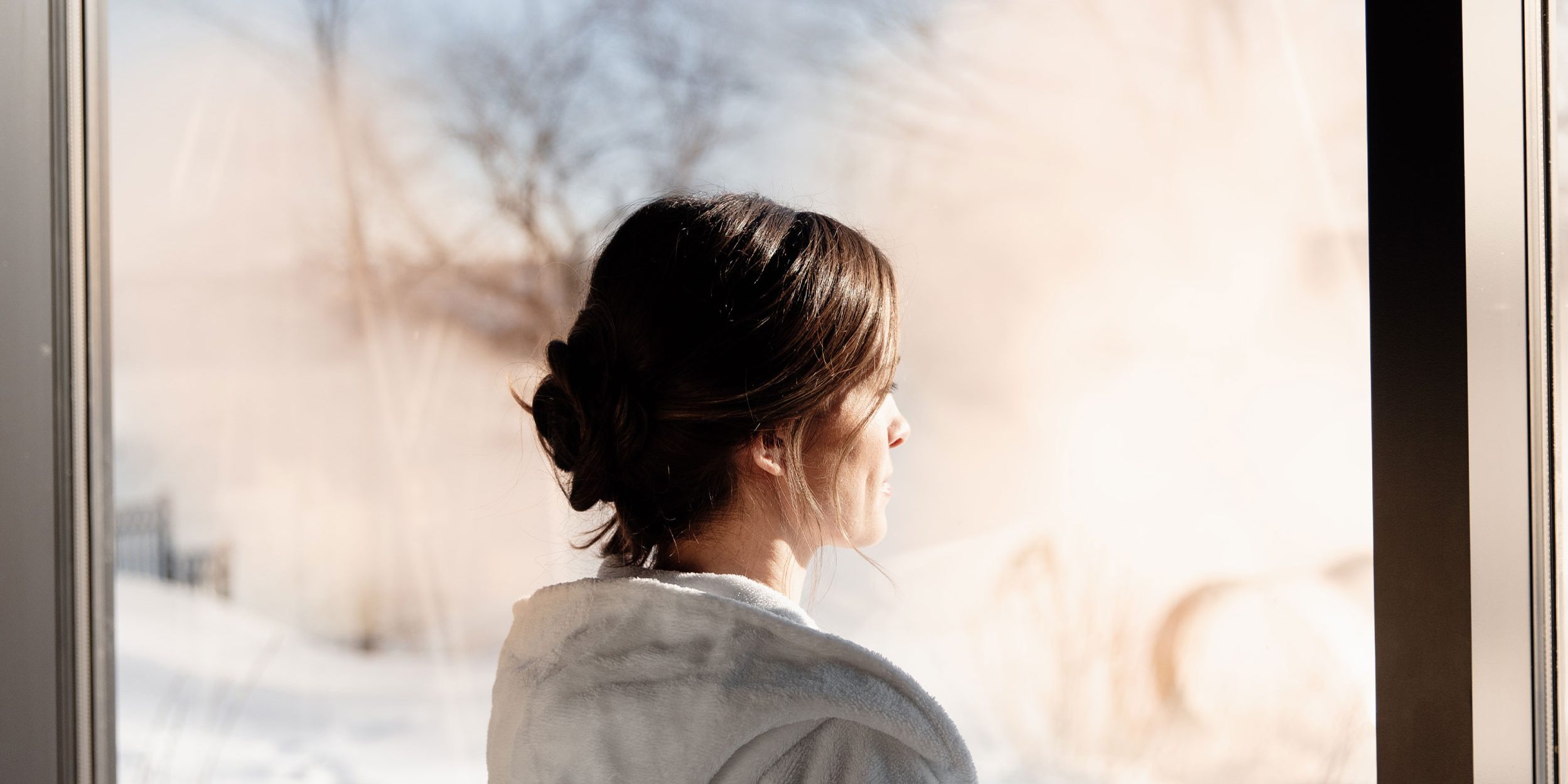In newspapers, social media, self-help groups…ecoanxiety now seems omnipresent in our society. Healthcare professionals, particularly psychologists, are also increasingly called upon to intervene with people who suffer from various degrees of ecoanxiety.
what is it?
Ecoanxiety is a type of anxiety related to the future of the planet and climate change. The term solastalgia, meanwhile, which appeared in the early 2000s based on the work of Australian environmental philosopher Glenn Albrecht, and as defined by the Office québécois de la langue française, refers to the distress that may be felt regarding the loss or modification of our environment due to climate change.
As with any type of anxiety, therefore, a threat is perceived by the individual (here, climate change). The uncertainty, unpredictability, and lack of control related to this threat cause a feeling of distress.
who is affected?
More and more people claim to be feeling anxiety related to the climate crisis. A recent study conducted in the United States also revealed that one in four Americans say that they are “very worried” about the effects of global warming1. A literature review on the subject published in 2022 by two Quebec researchers confirms that more and more of us are becoming aware of climate change and the threat that it represents, which has an impact on individual and collective psycho- logical well-being2. Furthermore, although all social groups are affected, ecoanxiety affects more women, young people, populations that live in more vulnerable regions, more marginalized people, and people who have a higher level of education2.
how to differentiate between anxiety and concern?
It is important to distinguish between anxiety related to climate change and concerns or stress associated with these changes. Indeed, perceiving climate change as a stressor is totally normal and can even be positive, since stress is what drives us to take action. Feeling a certain level of stress and being concerned while thinking about the future of the planet may therefore encourage us to take individual action, get involved socially, or vote for people who will put this issue at the heart of their priorities, for example. A certain level of concern can therefore be constructive.
However, for this stress to be considered anxiety in the clinical sense of the term, it must significantly affect the individual’s functioning. When it generates distress that is significant enough to lead to a dysfunction, ecoanxiety can thus be found in the large family of anxiety disorders. People who are anxious in general are therefore more likely to suffer from it.

what are the consequences?
A person suffering from ecoanxiety may be sad, agitated, discouraged, and feel a great deal of distress. They may also have palpitations or even experience panic attacks associated with climate change. Among other things, this may lead to insomnia, an inability to work, or difficult social interactions. As with any anxiety disorder, the feeling of powerlessness toward the perceived threat and the exhaustion associated with a chronic stressor can lead to depressive affects. For example, some people drop out of school, not seeing any possible future.
On a societal level, uncertainty regarding the future of the planet and concerns about climate change (and not necessarily clinical ecoanxiety) may drive some people to choose a different career or rethink their plans to start a family.

how to deal with ecoanxiety?
Like any type of anxiety, ecoanxiety comes from a feeling of uncertainty and loss of control. In these cases, our brain generates a stress response, hence the importance of promoting a feeling of regaining control over the situation. Here are four tips for dealing with ecoanxiety better. Of course, these tips are no substitute for mental health care, and if you are feeling distress related to climate change, it is important to seek help from a qualified professional.
1 — All the classic strategies for managing emotions apply and can be of great assistance. Healthy living is the basis of mental (and physical!) health, and ecoanxiety is no exception. Practising mindfulness meditation techniques to be more able to remain in the present moment, spending time in nature, doing a physical activity, eating your fill of nutritious foods, and setting aside enough time for sleep are protective factors that should not be overlooked.
2 — Treating anxiety disorders always involves having to tolerate a certain degree of uncertainty. Indeed, it is necessary to learn how to live with it, accept it, and even welcome it! It may take time and require the assistance of a professional, but what can also help is to try to act on what you can control. Even though it may seem futile at times, living in an eco-friendly way by being in harmony with your values, reducing your ecological footprint, and adopting an environmentally responsible lifestyle can increase your feeling of well-being.
3 — Social support is also at the heart of mental health. In the case of ecoanxiety, it may be desirable to surround yourself with people who share similar values and who also take action for the environment. This helps promote a sense of belonging, reduces the feeling of powerlessness, and contributes to a more positive vision of the future.
4 — Finally, it appears that one of the factors contributing to the increase in ecoanxiety in young people is the use of social media. Information about natural disasters, apocalyptic predictions, and shocking images of the devastated planet are everywhere, especially when climate change is one of our The purpose of these images and news is to make the public aware and promote pro-environmental actions, but they can also have the perverse effect of causing ecoanxiety in people who are already concerned with the climate crisis. Limiting your news consumption and disabling notifications from certain groups or media may be particularly appropriate if you suffer from ecoanxiety.
In short, although more and more people are concerned with climate change, not all of them necessarily suffer from ecoanxiety in the clinical sense of the term. Whatever your level of stress, it is essential to preserve your mental health by applying the tips mentioned above and seeking help if needed.
Sources
1 Leiserowitz, A., Maibach, E., Rosenthal, S., Kotcher, J., Carman, J., Wang, X., Marlon, J., Lacroix, K., et Goldberg, M. (2021). Climate Change in the American Mind, March 2021. Yale University and George Mason University. New Haven, CT : Yale Program on Climate Change Communication.
2 Gousse-Lessard, A. S. and Lebrun-Paré, F. (2022). Regards croisés sur le phénomène « d’éco-anxiété » : perspectives psychologique, sociale et éducationnelle. Éducation relative à l’environnement. Regards-Recherches-Réflexions, 17 (1).




